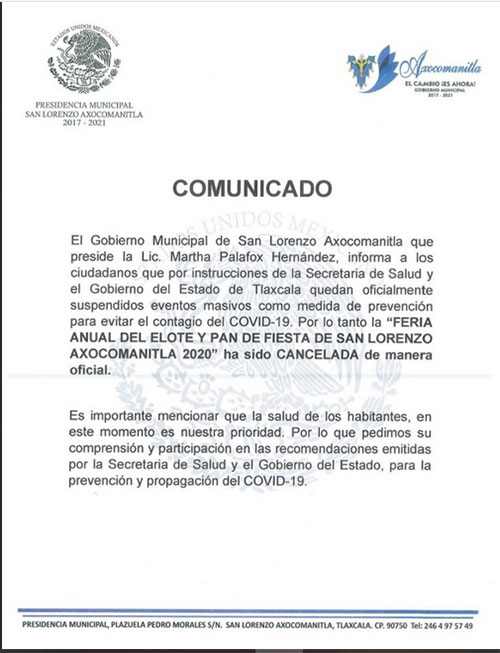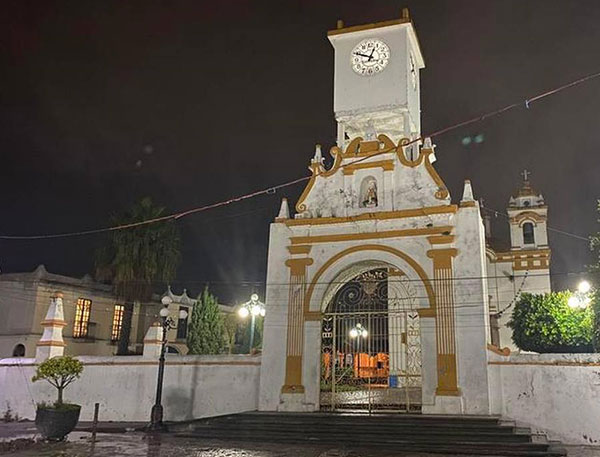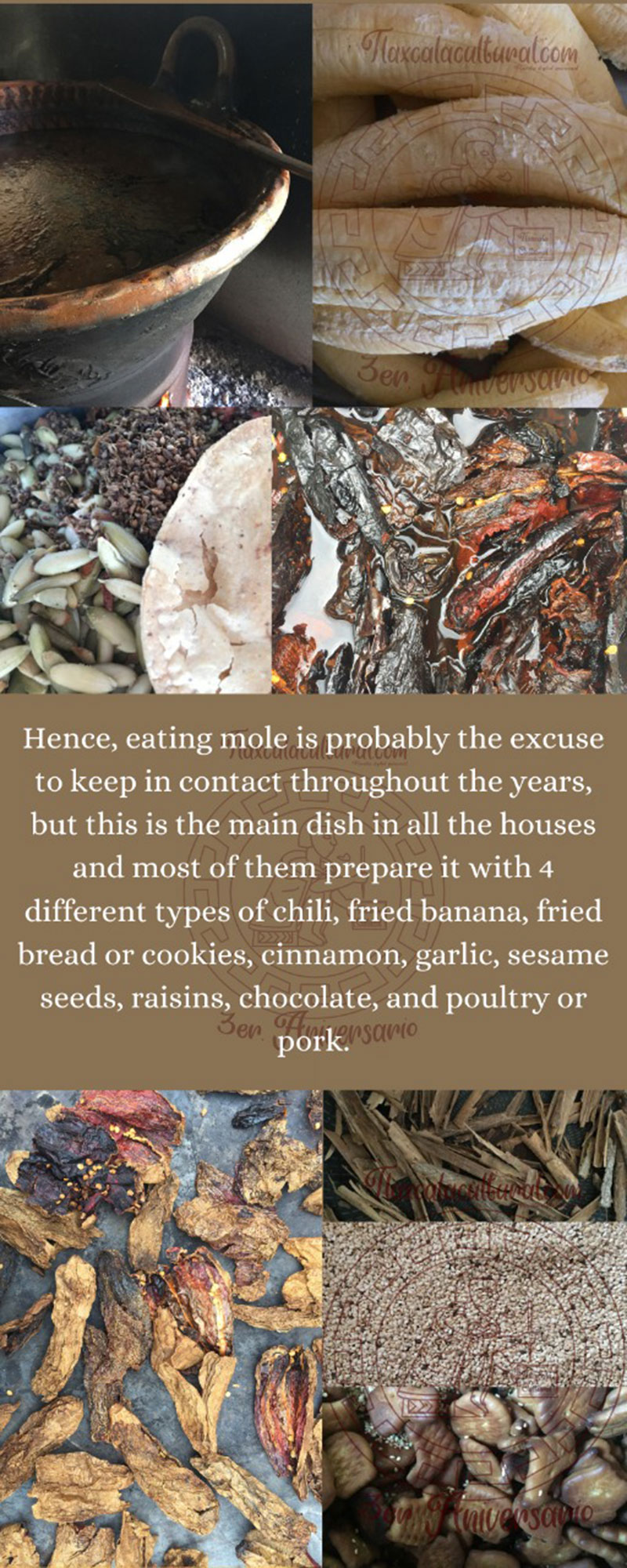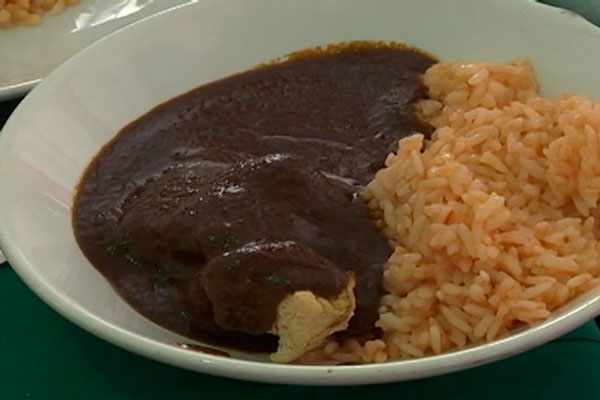200 GUESTS TO CELEBRATE.
This time the dining room was empty at home. I did not receive any guest to eat and my family and I did not prepare any meal for our almost 200 guests, who usually visit us on August 10th, as a social practice, every year. This happened because the pandemic made us change our traditions and forced us to stay separated from our relatives and friends, if we wanted to continue living.
Moreover, these days have been different from many others, particularly when we think of what we used to do before March 2020; when we were warned to take care of our health. Staying at home has forced us to slow down our pace and to watch some important aspects that were not seen in the past, while we rushed to work every day. The first of it is the discovery of having an endless week, as if we only had a Monday, and it was always Monday. With this, time can easily be seen as a continuum, with days and nights which are not different at all, except because some days it rains or it´s hot or cold. Everyday is unique but if we didn´t have the names of the days, any difference could be checked; except for the moment of sleeping or waking up.
At home, the days go by with more than 200 hundred messages per day, phone calls, e mails and video conferences in a small, improvised office. There are no visits. In addition to this, many people have tried to spend their days by being busy, so they don’t feel how six months have passed without going to a party, visiting friends, going to a movie theater or going to dance. All the celebrations in the surrounding towns have been totally restricted and with them, some of our traditions have too, as this delicious meal called ´mole´ which we have prepared each year for our friends, for many years.
In some states of Mexico, but specially in Tlaxcala, offering food to our friends is a traditional legacy imposed by our ancestors everywhere. They all had this custom of receiving people each year when they celebrated the saint of the town (remember that our towns have a name in Nahuatl and at the same time a name of a Catholic Saint). Then, eating mole is a very common tradition that makes us be together and it´s a form of sharing what you have with your friends and to reinforce the bonds of friendship. Then, if you visit this, (the smallest state of this country, with 0.2% of the Mexican territory), you will find out many customs to celebrate, such as the carnival in February, the traditional fair in October, the dead´s day in November (with the first offering for someone who has recently passed away), and of course the parties held in almost all the 396 ranches, colonies or towns every eight days. In these places, many people prepare a delicious mole everywhere, and it´s a tradition that if someone invites you to eat this month, the next month you can invite him too. This helps people to keep in contact for many years, and it doesn’t matter that you see them only once a year, you know that when the time comes, you will see those people again.
 (The secret to get it more delicious than others´ is the right amount of each ingredient!). This usually goes accompanied with red rice, tamales (prepared with boiled and ground corn and stuffed with any sauce and meat or cheese, wrapped in a totomoxtle which is a corn leaf) and tortillas. Besides, there is always a delicious drink which can be water, soda or pulque.
(The secret to get it more delicious than others´ is the right amount of each ingredient!). This usually goes accompanied with red rice, tamales (prepared with boiled and ground corn and stuffed with any sauce and meat or cheese, wrapped in a totomoxtle which is a corn leaf) and tortillas. Besides, there is always a delicious drink which can be water, soda or pulque.
For many people, preparing this food implies being with relatives and friends for 2 or 3 days before the exact date of the party, because big quantities of the ingredients must be fried, peeled or chopped (depending on the ingredient). Therefore, they share a lot of time together while they organize and do everything. For many, this food could be considered spicy and irritating, but the reality is that it is very delicious to eat in small amounts and the recommendation is to eat it only one time per day. If you eat it frequently, of course, this could be a little bit harmful for your health. Here, before the pandemic, we used to eat it twice, three or four times a month (every 8 days) in baptisms, 15th anniversaries, weddings, graduations, birthday parties and of course in the holyday of a town where they worship a special saint.
In sum, traditions are a legacy that goes on through generations, in the same way that are ideals, behaviors, dreams, the love for one´s country, values or the preferences of a diet. I am sure that these ones will be retaken, as soon as the pandemic is controlled or totally eliminated and my dining rooms will be full again with many people sitting at the table, talking and laughing. This is another part of our informal education that cannot easily be forgotten or eliminated from our lives. Besides, flavors take us back to unforgettable moments and we keep looking for them to feel the sensation of going back to our past, to have the feeling of being living with those people who taught us to love them a lot.
*Rosalía Nalleli Pérez-Estrada. Directora de Universidad Santander, Campus Tlaxcala. Profesora por asignatura, de la Universidad Politécnica de Tlaxcala y en coordinación del Departamento de idiomas de la misma universidad. Investigadora invitada por CIFE y Fundadora de la Sociedad Anónima Madison School Come to be the Best, desde 1999.
e-mail: rosalia_na@hotmail.com




Very interesting!, congratulations.
Hello. excellent job. I did not anticipate this. This is a fantastic story. Thanks!